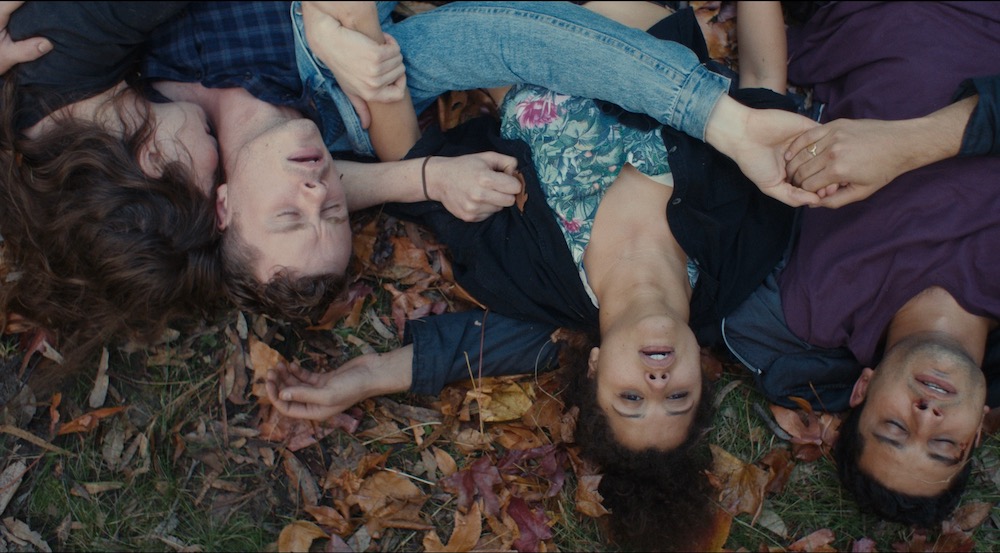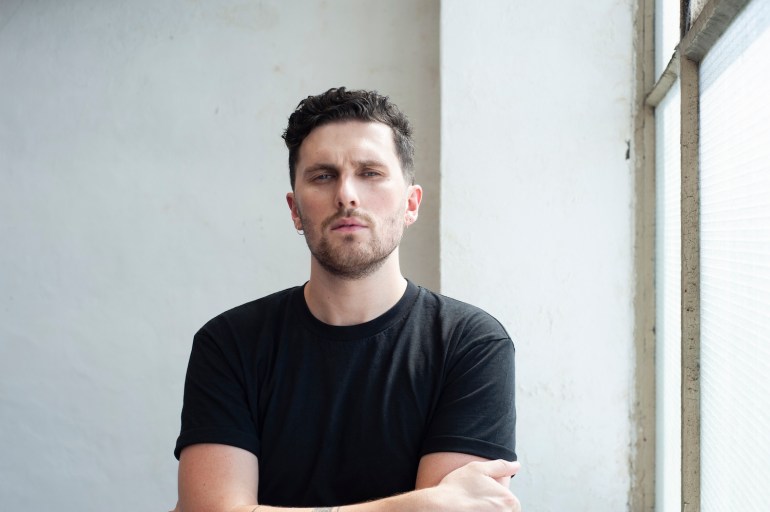For every deeply personal project that requires Thomas Wilson-White to rip his heart out, the writer-director also prepping joyful works that serve as “beautiful Band-aids”.
Wilson-White’s debut feature The Greenhouse premiered last year at the BFI: Flare London LGBTIQ+ Film Festival and Frameline, and went on to win Best Direction in a Feature Film (budget under $1M) at the 2021 Australian Directors Guild Awards, as well as the Audience Choice Award at 2021 Mardi Gras Film Festival.
Now on Netflix, the magical realist spin on a family drama follows Beth, who is still grieving the death of one her mothers, Lillian, years on. She is languishing in the family home, living with her surviving mother, Ruth, while her siblings have all moved on and moved away.
On the eve of Ruth’s 60th, Beth discovers a greenhouse that sends her into the past, where Lillian is still alive and a younger Beth is trying to deal with her burgeoning sexuality. As her siblings and a past love return home, tempers flare and Beth’s retreats to the past are discovered.
The Greenhouse is a personal story for Wilson-White, who began writing the film in 2016 while studying his Masters at AFTRS. At the time, both his mothers had cancer and he wanted to pen a love letter to them and the upbringing they had afforded him in regional Australia.
The film was then shot on location in his hometown of Jervis Bay in 2017, with a small crew and a cast of just nine actors. However, after filming, one of his mothers’ illnesses got worse, so he moved back home to be their carers. The Greenhouse was essentially put on hold. After his mother Polly died in late 2018, Wilson-White continued the hiatus for another year, because it all was too close to home.
“The last thing I wanted to do was sit in an edit suite and edit a movie about my mum dying,” he tells IF.
“Then, as grief does, I just woke up one day and realised I had a beautiful opportunity to finish the film for her and capture something I hadn’t then experienced.”

Given the pandemic, Wilson-White was “seriously managing” his expectations for the film’s release, but has been “surprised and delighted” by the response, particularly that it has landed Netflix. He regards the experience of making The Greenhouse as formative, galvanising his voice as filmmaker.
“I’ve found a place where my voice exists and where I can write from that feels authentic to me,” he says.
“A lot of people have said – and this surpassed my wildest expectations of people’s critique of it – but that the queerness is baked into the story. It’s never the centre of the story; it’s a family drama about grief. And as a queer person, that’s exactly how I feel everyday when I wake up – just a person living their life and trying to do their best. But often my queerness and my sexuality is the focus for other people.
“I really want to make work that sits in the space of always uplifting and amplifying marginal storylines and always centering queer characters – because that’s all I’m interested in – but has more to say, more to do, and plays with genre.”
Wilson-White believes the landscape for queer narratives in Australia is expanding – “every queer story doesn’t have to be a coming out story anymore” – and that there is genuine enthusiasm from the industry for such work, even if there is still “a lot of room to grow”.
“These conversations started overseas maybe 10 years ago, and they are at a point with representation where it’s so exciting to see characters where their queerness isn’t front and centre, and their trauma isn’t front and centre. That’s where I’m hoping we can get to here, for sure.”
Wilson-White will continue to draw on his own life with 10 x 30-minute dramedy series Sick to Death, loosely based on his time being “gay, 25 and stuck in the country” as a full-time carer for his mothers.
Produced by Wilson-White and Lizzie Cater’s production company Everyone We Know in association with Rhapsody Films, the series has received development support from Screen Australia and Screen NSW and is currently at pitching stage.
As creator, writer and executive producer, Wilson-White describes the series as a “sister show” to the The Greenhouse in some ways, albeit with a very different tone.
“Greenhouse is very melancholic and a meditation, and was always meant to feel that way. But I’m well and truly thriving in comedy; I love it. I didn’t expect to love it as much as I did. It’s become a game of like, ‘What’s the most crass, disgusting thing I could write?’ And apparently people love it. So it’s a reprieve.”
While Sick to Death has become less autobiographical and more fictionalised through development, Wilson-White notes it remains personal as a “thesis about contemporary sexuality, and the way in which masculinity and homosexuality intersect.”
“The fact that it’s personal means it’s just very confronting sometimes, particularly when you’re selling it. That’s the part I’m still trying to navigate as an artist; selling my trauma and making it sound fun and sexy, when actually, it’s full on,” he says.
“I feel like I balance it out with other projects that are a bit more removed from me.”
One of those projects has been Netflix’s Heartbreak High reboot, a Fremantle/NewBe series for which Wilson-White worked in the writing team alongside creator Hannah Carroll Chapman, and writers Matthew Whittet, Marieke Hardy, Meyne Wyatt and Natesha Somasundaram.
“It was a joy. I was able to invest a lot of myself into it, but never really feel exposed,” he says.
“The team’s amazing. Everyone’s really committed to making something that hasn’t been done here before, so I felt my voice was perfect for the room. I was able to pitch ideas that are borne from a frustration that I don’t see characters on screen that have a variety of experiences. I think a lot of marginal people want variety in terms of the representation they’re seeing.”
For Aquarius Films, Wilson-White is also scripting with Yve Blake a 1995-set Rock Eisteddfod feature that Alethea Jones will direct.
“It’s hyperpop – ridiculous dance numbers, which is absolutely a part of who I am as well so I’m stoked.”
In documentary, Wilson-White is readying hybrid series Tapestry, which centres on LBGTQIA+ philosophy. It has received development funding from Screen Australia.
“I wanted to talk about love, life and death, ambition and creation – the big stuff really – with queer people and get their points of views and experiences. It’s very spiritual,” he says.
“I spoke to a lot of people that have faith and are queer. The interviews are probably one of my favourite things I’ve ever done. I just sat in my room during lockdown last year having huge conversations with people that were scheduled for 30 minutes and would go for four hours, just talking about everything. Asking the questions that are not often asked of people that have a marginal identity. Often we’re asked about the plebiscite, or some horrible bill that he government is trying to pass. But actually, I wanted to know the guts of these people.”
Further, Wilson-White also writing his next feature film, which he hopes will be a love story. Broadly, he is open to his career taking him in whatever direction.
“As long as feels fun and authentic to me. Maybe I won’t always be ripping my heart of my chest. We’ll see.”


